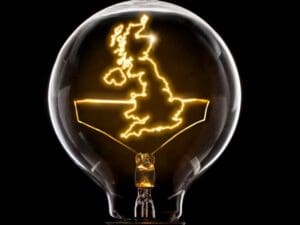
According to new research from Cornwall Insight, household flexibility, which can be enabled by smart meters, has the potential to substantially support reductions in peak energy consumption, equivalent to the capacity of four new gas-fired power stations.
The UK market researcher’s report, The power of flex: Rewarding smarter energy usage, outlines the importance of enabling household flexibility, which has the potential to benefit individual households, the national energy system and the environment.
The report highlights four key findings:
• Smart meter-enabled flexibility can cut peak consumption by 3GW;
• Household flexibility could deliver annual savings for consumers and the energy system of £14.1 billion/year ($17.9 billion/year) in 2040;
• Individuals engaged in flexibility could save 52% in wholesale electricity costs in 2040;
• Carbon savings increase 45% with the engagement of household flexibility.
Smart meters crucial for enabling flexibility
According to Cornwall Insight, the research focussed on the system-facing benefits that can be realised by managing and deploying the flexibility potential in household electricity use.
The flow of relevant data between different parties engaged across the energy system is essential to delivering opportunities, states the company, and smart metering infrastructure is a core component in ensuring this information is available to all relevant parties when they need it.
Using the half-hourly data from smart meters, customers can also be rewarded for reducing their use of electricity at certain times, in a way that would not be possible with a traditional meter. With a traditional meter, suppliers typically do not have visibility of consumption at different times of day, states the research, and therefore could not reward customers for making a change in their consumption pattern.
Have you read:
Flexibility record set in GB
UK energy regulator investigates domestic demand side response
Enabled by the presence of smart meters, household flexibility was found to support substantial reductions in peak consumption, the equivalent of four new gas-fired power stations.
Specifically, states the research, managing flexible demand technologies like EV charging, heat pump operation and solar and storage activities to market prices and system requirements equates to 3GW of peak demand on the network avoided overall in 2030.
This reduction is equivalent to saving almost £1 billion ($1.3 billion) in spending on the electricity network, including wires and other infrastructure which delivers electricity to homes.
Further savings are seen in 2040, with a 1.5GW reduction in peak demand facilitated by household flexibility, saving £1.7 billion ($2.2 billion) in avoided network upgrades and the building of new gas-fired power stations.
£14.1 billion saved by 2040
According to the study’s comparison between two scenarios, one with enabled flexibility and one without, the flexibility scenario sees consumers and the energy system benefit from £14.1 billion in savings in 2040.
This arises from three key areas, states the report:
• Lowered wholesale electricity prices accounting for £12.3 billion ($15.6 billion);
• Lowered peak demand, reducing the need to build additional power stations, delivering savings of around £1.2 billion ($1.5 billion);
• Reduced need to build additional network assets, equating to a saving of around £500 million ($634 million).
These financial savings relate to single-year scenarios modelled for 2025, 2030 and 2040. The scenarios are stand-alone and are not cumulative for the time periods between the scenarios, states the research.
Also of interest:
EU flexibility requirements to increase significantly towards 2050 finds JRC
Energy Transitions Podcast: Enabling flexibility with district self-balancing
Looking nearer term, in 2030 the research finds overall savings of £4.6 billion ($5.8 billion) and by as soon as 2025, the ability to shift some consumption out of expensive peak periods supports wholesale power price savings, with overall power costs £21 million ($26.6 million) lower.
Flexible households could save 52% in wholesale electricity costs in 2040
According to the research, for households with EVs, heat pumps and other smart-capable assets that are managed in line with flexibility incentives, wholesale electricity costs are 52% lower in the Flexibility Scenario, saving £3755 ($4759) in 2040.
These savings take account of the additional electricity demand required to transition to electrified heating and transport and come from these households being rewarded for moving the flexible parts of their electricity consumption into cheaper periods. This means these customers won’t face additional costs from petrol and gas, states Cornwall Insight.
45% increase in carbon savings
According to the report, engagement with household flexibility results in a 45% increase in carbon savings compared to the no flexibility scenario, the equivalent of planting 630,000 trees, states the research.
By engaging with flexibility, households can have a positive environmental impact, shifting consumption from peak times when gas-fired power stations are often used to meet demand, to other times of day when renewable energy is generating more.








